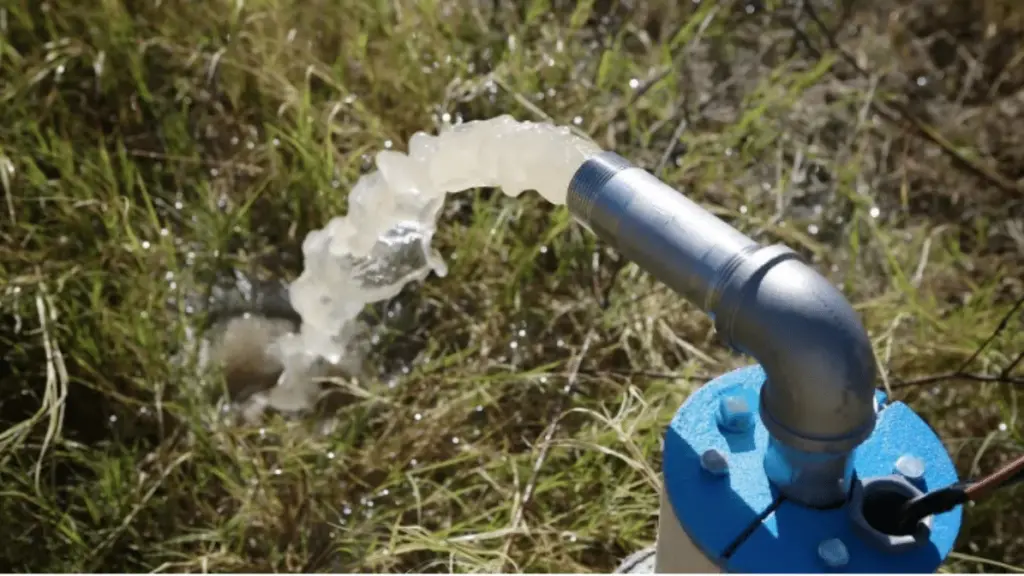Brown Water Woes: Tackling Well Water Discoloration

Ah, the joys of homeownership. It’s a journey filled with surprises, some more pleasant than others. One of the less delightful discoveries for many well water users is the occasional appearance of brown water flowing from their taps. Not exactly what you had in mind for that morning cup of coffee or refreshing shower, right? But fear not, for there are solutions to this common conundrum.
What Distinguishes Treatment Methods For Brown Well Water Offered By Professional Services?
When it comes to tackling brown well water, professional services offer a range of treatment methods tailored to address specific issues. These methods often include filtration, oxidation, and even chemical treatments.
Filtration is a common approach used to remove sediment and other particulates causing discoloration. This can involve various systems such as sediment filters, carbon filters, or multimedia filters, each designed to capture different-sized particles.
Oxidation is another effective method for treating brown well water. By introducing oxygen or other oxidizing agents, minerals like iron and manganese can be converted into solid forms that can then be filtered out of the water.
Chemical treatments, such as chlorination or ozonation, may also be employed to address bacterial contamination or to oxidize certain compounds causing discoloration.
How Do Water Quality Standards Impact Solutions For Addressing Discolored Well Water?
Water quality standards play a crucial role in determining the appropriate solutions for addressing discolored well water. These standards, set by regulatory bodies like the Environmental Protection Agency (EPA), establish thresholds for various contaminants and parameters in drinking water.
Adherence to these standards ensures that treatment methods not only improve water aesthetics but also meet health and safety requirements. Professional services must consider these standards when designing treatment plans to ensure compliance and efficacy.
Additionally, water quality testing is often conducted to identify specific contaminants present in the well water, guiding the selection of appropriate treatment methods tailored to the unique composition of each water source.
What Practical Methods Can Homeowners Employ To Manage Discoloration In Well Water?
While professional services offer comprehensive solutions, there are also practical methods that homeowners can employ to manage discoloration in well water.
Regular maintenance of well systems is essential to prevent the buildup of sediment and minerals that contribute to discoloration. This includes periodic cleaning of well components, such as screens and pumps, to ensure optimal performance.
Installing in-home filtration systems can also significantly improve water quality. Point-of-use filters, such as faucet-mounted or under-sink filters, are convenient options for addressing discoloration at specific taps.
Furthermore, implementing water conservation practices can help reduce sediment disturbance within the well, minimizing the likelihood of brown water incidents. Simple measures like avoiding excessive water usage during peak demand times or repairing leaks promptly can make a difference.
What Factors Contribute To The Variance Between Treatment Systems For Well Water And Those Used In Centralized Water Systems?
While both well water and centralized water systems aim to provide safe drinking water, they each come with unique challenges and treatment methods. Here are the key factors contributing to their differences:
- Water Source: Well water is sourced directly from underground aquifers, while centralized systems typically draw from surface water bodies like rivers or lakes. The source affects the initial quality of the water and dictates the necessary treatment processes.
- Contaminant Levels: Well water may contain higher levels of certain contaminants like minerals, bacteria, and pesticides due to limited filtration through soil layers. Centralized systems often face different contaminant profiles based on the source and environmental factors.
- Treatment Needs: Treatment systems for well water often require individualized approaches tailored to specific contaminants found in a particular well. Centralized systems, on the other hand, employ standardized treatment processes that can handle a broader range of contaminants.
- Scale and Infrastructure: Centralized water systems serve larger populations and require extensive infrastructure for water treatment and distribution. Well water treatment systems are typically smaller in scale and designed to serve individual households or communities.
- Regulatory Oversight: Both types of systems must adhere to regulatory standards, but the specific regulations and oversight agencies may vary. Well owners are often responsible for monitoring and maintaining their water quality, while centralized systems are subject to municipal or state regulations.
Understanding these factors is essential for choosing the most effective treatment system for your water source. Whether you rely on a well or centralized system, ensuring access to clean, safe water is paramount for your health and well-being.
Why Well Doctor LLC is Your Best Choice
When it comes to addressing brown water woes and ensuring your well water is clean and clear, Well Doctor LLC stands out as your best choice. With years of experience and a commitment to excellence, we offer comprehensive solutions tailored to your specific needs.
At Well Doctor LLC, we pride ourselves on our expertise and experience in diagnosing and treating well water issues. Our team of professionals includes certified technicians who understand the complexities of well systems and are equipped with the knowledge and skills to deliver effective solutions.
From conducting thorough water quality testing to designing custom treatment plans, we approach each project with precision and care. Whether you’re dealing with iron staining, sediment buildup, or bacterial contamination, you can trust Well Doctor LLC to provide reliable and efficient service.
Our goal is not only to eliminate discoloration but also to improve overall water quality, ensuring that you and your family have access to clean, healthy water every day. With Well Doctor LLC, you can rest assured knowing that your well water is in capable hands.
FAQs
Q: How much does well water treatment cost?
A: The cost of well water treatment can vary depending on factors such as the type of treatment needed, the size of the system, and any additional services required. At Well Doctor LLC, our services typically range from $500 to $2000, but we provide upfront estimates for transparency.
Q: How long does it take to see results from well water treatment?
A: The timeline for seeing results from well water treatment can vary depending on the specific issues being addressed and the treatment methods used. In many cases, you may notice improvements in water quality within days or weeks of treatment.
Q: Will well water treatment remove all contaminants from my water?
A: While well water treatment can significantly improve water quality, it may not remove all contaminants. The effectiveness of treatment methods depends on factors such as the type and concentration of contaminants present. We recommend regular water testing to ensure ongoing water quality.
Take Action Today!
Ready to say goodbye to brown water woes and enjoy clean, clear well water? Contact Well Doctor LLC today to schedule a consultation and learn more about our comprehensive treatment solutions. Don’t let water discoloration ruin your day – trust the experts at Well Doctor LLC to restore your well water to its pristine best.



